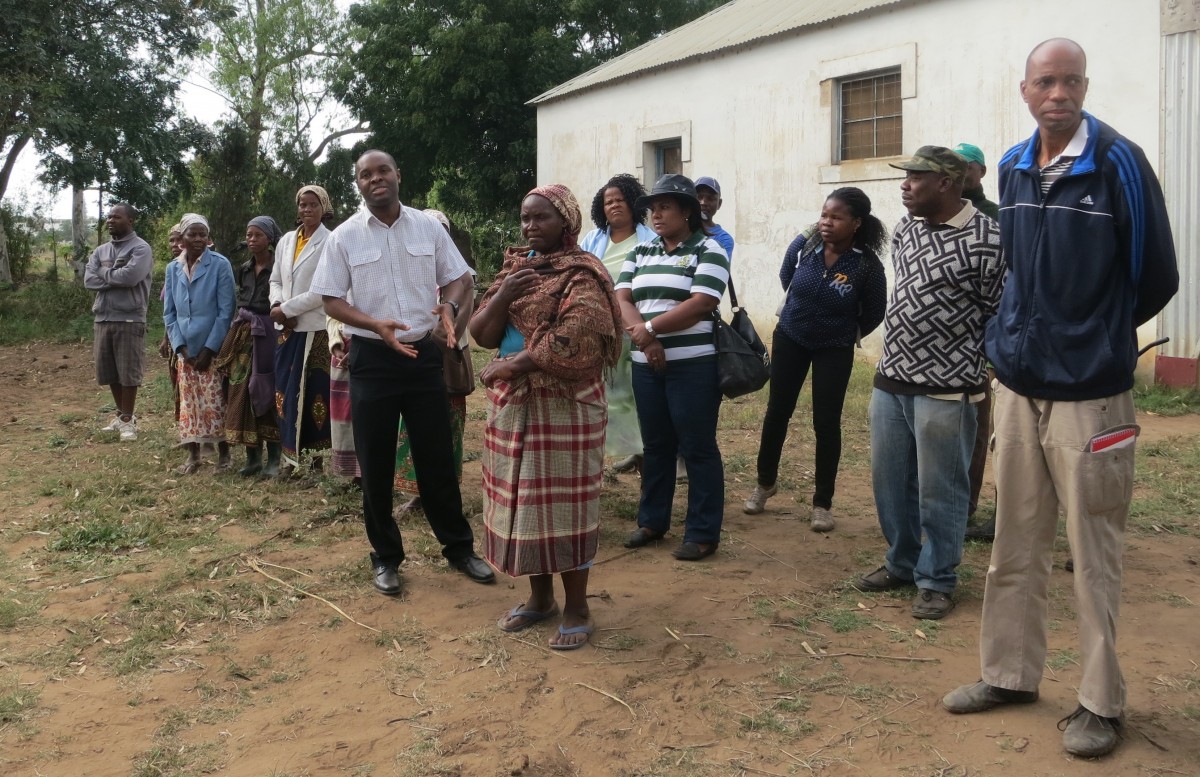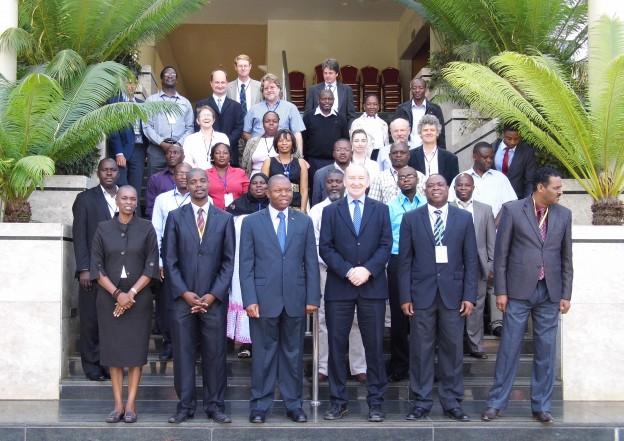Farmers doing it for themselves, a learning approach to improving irrigation sustainability in southern Africa
Early in 2013, the AIFSRC, approved the second major project within its Sustainable and productive farming systems program. This project is titled, “Increasing irrigation water productivity in Mozambique, Tanzania and Zimbabwe through on-farm monitoring, adaptive management and agricultural innovation platforms“– a bit of a mouthful – but as the title suggests, technology will be mixed for a participatory approach success.
The project inception workshop in Maputo Mozambique was officially launched by the Vice Minister for Agriculture, H.E. Mr Antonio Limbau with the Australian High Commissioner to South Africa, H.E. Mr Graeme Wilson, and other senior officials from Mozambique, as well as project partners from Australia, South Africa, Zimbabwe and Tanzania.
“Water is often used poorly in irrigation schemes in Africa… farmers need to learn by doing and adjusting how they are using the water… irrigation farmers need to establish their own institutions and processes”, said Project Leader Dr Jamie Pittock.
Initially, it was clear that the participants found it difficult to ‘wrap their heads around’ the Agricultural Innovation Platforms (AIPs). It would have been so easy to set up another irrigation scheme rehabilitation project in the three countries, to address infrastructure and technology issues, but many players have seen that these two interventions on their own do not work, and in some cases have failed outright. The project takes a different approach in the use innovation platforms for community problem solving and to promote learning skills amongst farmers to change the way problems are solved and to integrate technical and social skills to address challenges faced in the project sites.
Chapters of a book
The facilitator of the workshop, Dr Jurgen Hagmann encouraged participants to envision the chapters of a book as a journey to where we want to be in four years when the project ends. Project Leader Dr Pittock presented a structure that helped to guide participants on what they needed to think about in their planning sessions:
At the irrigation scheme scale -
- How does building the capacity of people improve irrigation sustainability (software over hardware);
- Does ‘adaptive learning’ enable irrigation farmers to become more productive?
- Can multi-stakeholder participatory ‘innovation platforms’ help improve the profitability of irrigation?
At larger scales –
- What policy development and/or reforms may best improve irrigation sustainability?
This project is funded by the AIFSRC and managed by the Australian Centre for International Agricultural Research (ACIAR). The ACIAR Research Program Manager, Dr Evan Christen is keen to see this project link to other research projects with similar objectives, including the improvement of nutrition of the smallholder farmers and their families. The AIFSRC is funding another project in Mozambique, which aims to improve nutrition by promoting peri-urban vegetable farming.

Irrigation Farmers
As part of the inception workshop, participants visited the field – a small irrigation site in Boane, south of Maputo. Here we met members of the irrigation scheme with their President Albertina.
She informed us that this scheme supplies vegetables to the towns of Matola and Maputo and though it is quite close to these two towns, their main challenge is lack of transport which means that they have to sell their vegetables to middle men at a really low price comparative to what the produce would fetch in the towns, they only get A$0.15 per kg of cabbage, a sixth of the price the cabbage will fetch at the local market in Maputo city. The association has 38 members with an 80 hectare land allocation but they only use 35 hectares of the land to grow cabbage, maize, green beans, potatoes and tomatoes.
The farmers are hungry for ideas on how to improve their incomes. They have a dedicated extension officer visiting the scheme daily and interacting with each farmer three times a week.
There are opportunities for the farmers in this scheme to learn and use new knowledge; to find better ways of working within the community; to encourage the youth to participate actively in agriculture; to use their crop residues efficiently and most important, to get more money for every drop of water used!

